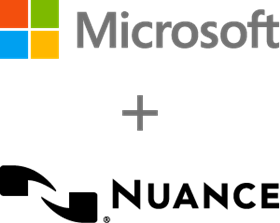The transformative power of artificial intelligence will not only empower NHS healthcare professionals by reducing cognitive and workload burdens but will lead to better patient care and outcomes
Sponsored by
In the UK, and around the world, healthcare systems are faced with long backlogs and limiting staff shortages, and are striving to do more with less. Technology alone is unlikely to solve this crisis, but it will help overburdened healthcare systems find a better balance. The latest solutions powered by AI are empowering NHS doctors, nurses, and allied healthcare professionals to return more of their focus to patient care, reducing cognitive burdens, and supporting better outcomes.
Transforming healthcare with Artificial Intelligence
AI is transforming every industry, enabling enterprises to automate time-consuming routine tasks, conduct large-scale data analysis, and gather real-time operational insights. Healthcare is no exception and AI is already supporting clinical research, resource planning, patient engagement, diagnostics, and clinical workflows.
In medicine, AI emerges not as a replacement but as a pivotal ally to the clinician
Critically, these AI tools are enhancing but not replacing the role of clinicians, as highlighted by Dr Jesper Hessius, chief clinical information officer at Microsoft Nordics, “In medicine, AI emerges not as a replacement but as a pivotal ally to the clinician. Just as our current medical tools have evolved to enhance care, AI represents an advanced extension of our knowledge base, and ability to put that knowledge to use. AI is able to surpass the limitations of human capacity to process information, offering personalised care insights that were previously unimaginable.
“However, being a clinician goes beyond data interpretation; it’s about understanding, connecting with, and helping a fellow human being, something which AI cannot replicate. This synergy of AI’s data-driven precision, and a doctor’s empathetic approach creates a more efficient, evidence-based practice, allowing us to devote more time to the core of our profession: truly seeing and understanding our patients.”
Reducing the pressure on NHS clinicians
So, how can AI technology alleviate the pressure on clinicians? The answer, says Umang Patel, chief clinical information officer at Microsoft UK, is by solving very specific challenges, and saving them time. “The only way to do that is by utilizing tools that do really simple things, really well. One of those tools is AI-powered clinical speech recognition.”
“Our speech recognition solution, Dragon Medical One is helping the NHS improve productivity in primary and secondary care. Take the emergency department setting for example, studies have shown individual clinicians are saving 2-4 minutes per patient by speech-enabling their workflow - minutes that soon add up to hours across a busy ED team,” explains Dr Simon Wallace, chief clinical information officer at Microsoft UK.
A growing number of NHS trusts are benefiting from speech-enabled electronic patient records. Examples include, Homerton University Hospital Foundation Trust, where the average letter turnaround time was reduced by 88 per cent. They went from 17 days down to two days and were able to send out 90 per cent of their letters within 24 hours. Similarly, Oxford University Hospital FT, reported a 75 per cent reduction in average letter turnaround time. They went from 12 days down to three days. There is also a cost saving benefit, Frimley Health FT is saving approximately £20k per month by replacing outsourced transcription.
The next step for hospitals that have speech-enabled their EPR, will be future solutions combining Conversational AI with Ambient AI and Generative AI. This technology enables secure capture of multiparty patient visit conversations and automatically converts them into structured, clinical summaries. It dramatically reduces the amount of time and mental energy clinicians spend on routine administrative tasks, also helping them to fully engage with the patient in front of them. In the healthcare world, Generative AI is set to be a game-changer.


























